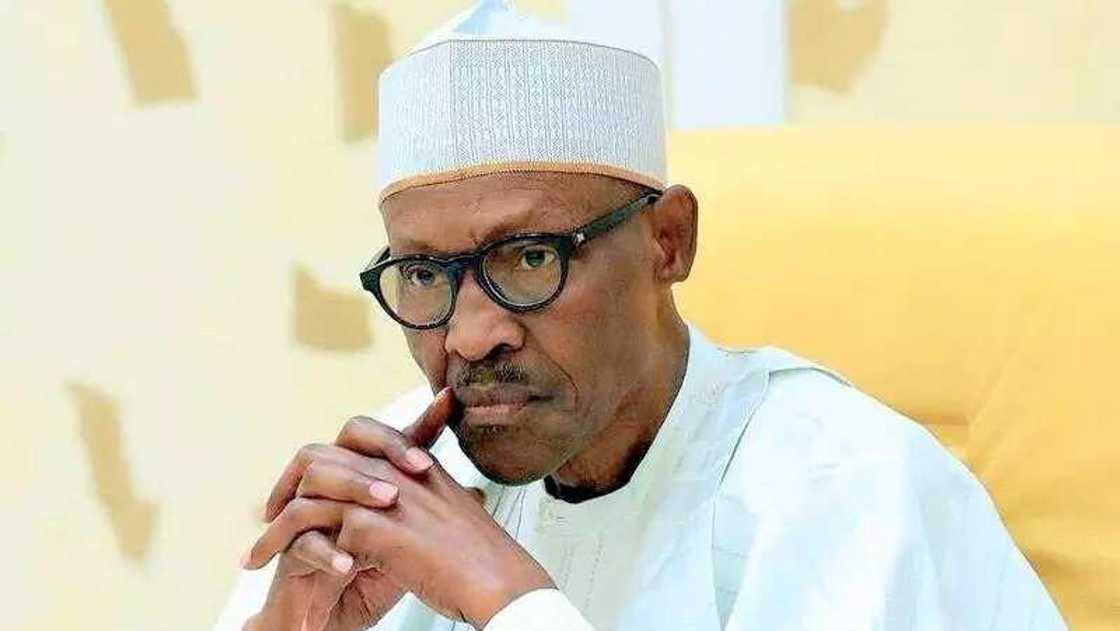2023 Primaries: APC, PDP Heap Pressure on INEC for Extension as Disparities in Delegates’ List Persists
- Emerging reports have confirmed that there are uncertainties in APC and PDP over compiling the delegates list ahead of their respective primaries
- Political experts have revealed that President Buhari's delay in signing the amended Electoral Act has been the major reason why the compilation of the delegates' list has stalled
- Meanwhile, the major political parties have continued to mount pressure on INEC to extend its deadline for primaries
PAY ATTENTION: Click “See First” under the “Following” tab to see Legit.ng News on your Facebook News Feed!
There have been numerous calls for the independent electoral body of Nigeria (INEC) to extend the deadline for conducting primary elections.
This call is coming based on the premise that most political parties, especially the ruling party APC and the main opposition (PDP) are yet to sort out the lists of their delegates ahead of the party primaries which are barely two weeks away.

Source: Facebook
In a statement reported by PUNCH newspaper, APC stalwart, Gbenga Olawepo-Hashim counseled the electoral body not to pressure political parties conducting their primaries.
Olawepo-Hashim argued that the continuous call by INEC urging political parties to conclude their primaries before Friday, June 3 is "unreasonable and illegal.”
PAY ATTENTION: Follow us on Instagram - get the most important news directly in your favourite app!
While making reference to the antecedents of the electoral body in previous years where it has postponed elections, he said it will be hypocritical for INEC not to allow an extension.
He said:
“Party primaries are an integral part of the democratic process, and it is bewildering that INEC is not even interested in debates between aspirants, which remains a huge opportunity to define party platforms."
While also reflecting on the Electoral Act which stipulates that political parties have 180 days to election to submit their nomination, Olawepo-Hashim argued that INEC has power over the general election timetable but has no such power to detect the timetable of the party noting that it is strictly party business so long they do no act above the 180 days stipulations.
2023: Uncertainties mar delegates' list as Buhari delays process
While there is still a long wait for President Muhammadu Buhari to sign the amendment version of the Electoral Act, the compilation of delegates list has since been an issue.
As gathered by Legit.ng, it is critical that the president inks the amended Electoral Act as it will be a determinant on the number of delegates to be selected, this is according to a chieftain in one of the major political party.
On the legislative front, the red and green chamber of the national assembly has already passed the amendment to the Act to recognise statutory delegates as voters during primaries, congresses and conventions of political parties.
However, it was gathered that before now, the statutory provision of the Electoral Act did not give room for statutory delegates, including elected councillors, local government chairmen and their deputies, party chairmen in local government areas and six Abuja area councils, state and federal lawmakers, governors and their deputies, President and Vice- President, National Working Committee members, state party chairmen and secretaries, as voters at the primaries.
Corroborating these already established facts, the the director-general of the Voice of Nigeria and Chairman of the Kebbi State Screening of the APC Nigeria, Osita Okechukwu, noted that President Buhari's delay to sign the amended document of the new Electoral Act has been a major delay.
He said:
“Nobody has the exact number of delegates electing the presidential candidate because the issue of statutory delegates has not been settled.”
“In the event that Mr President refuses to endorse, then we will be left with three delegates per 774 Local Government and Area Council of Nigeria, which is 2,322. This delegate issue is only applicable if the leadership of our great party adopts the indirect mode of electing our presidential candidate. Otherwise, our constitution and the Electoral Act provide for direct, indirect and consensus.
“All I know is that the Senator Abdullahi Adamu-led National Working Committee of our great party is law-abiding and believer in the doctrine of rule of law; accordingly will follow the provisions of our party’s constitution, the 1999 Constitution of the Federal Republic of Nigeria, the 2022 Electoral Act and other extant laws.”
2023: INEC reacts as political parties seek adjustment of elections timetable
Meanwhile, despite the provisions of the 2022 Electoral Act, eighteen registered political parties under the auspices of the Inter-Party Advisory Council (IPAC) have called for the adjustment of the timetable for the 2023 general elections.
However, INEC chairman Professor Mahmood Yakubu in reaction to the call said there would be no review of the timeline for the party primaries.
He reminded the political parties that the period earmarked for the conduct of primaries by political parties commenced on Monday, April 4, 2022, and will end on Friday, June 3, 2022.
Source: Legit.ng


